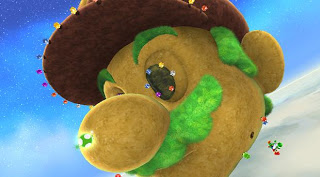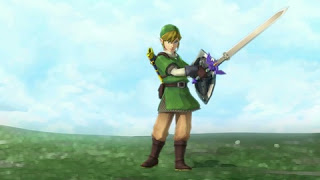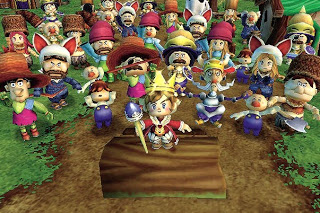This post has not been edited by the GamesBeat staff. Opinions by GamesBeat community writers do not necessarily reflect those of the staff.
Digging through Nintendo's first-quarter profit report released last Friday reveals few software surprises. Super Mario Galaxy 2 was, surprise surprise, Nintendo's biggest new release on the Wii, and its DS contemporary was Pokemon Heartgold/Soulsilver. So far, so Nintendo: extremely well-crafted games from established franchises leaving much of the third-party competition in the dust.
More surprising was the revelation that from January to June 2010 Nintendo made its first loss — of $288.4 million to be exact — since the release of the Wii in November 2006. There were a couple of reasons for this according to the earnings report; first, a drop in DS hardware sales of 7.7 million units, and second, a drop in the value of the Yen against both the Euro and the Dollar, two currencies in use by a large majority of Nintendo's market.
At first sight this loss could simply be put down to seasonal change. After all, the first quarter of the year is traditionally the quietest in the world of video gaming, devoid of any major holidays to provide excuses for millions to shell out for that console they've had their eye on all year. Considering this, it's not hard to imagine this as the cause of Nintendo's setback, especially considering their stereotypically younger audience, who are much more reliant on Christmas to get their game on.
Whilst certainly it may be the case that the changing seasons are partly to blame for this drop in sales, it doesn't explain why Nintendo have suffered more than the other two console manufacturers. Indeed, Sony returned to profit this year thanks in part to strong sales from its gaming division. Their success thus begs the question — what has Nintendo done wrong?
Perhaps the answer lies with software. Sony's platform saw numerous exclusive releases over this period from both established brands such as God of War, as well as all new franchises like Heavy Rain. Likewise from Nintendo, there's been no break in the flow of big titles such as the aforementioned Pokemon Gold/Silver remake, and Super Mario Galaxy 2, one of the best received games Metacritic has ever seen.
As anyone who's been watching the video games industry for long enough will know, this is a business tied inexorably to the console cycle. A console's meteoric rise to sales prominence in its first month on sale will almost always be mirrored when its successor is released, sending it into a sales spiral few care much about. Sony's products seem strangely immune to this law of nature, but due to the enormous focus Sony places on supporting its past products, their success is the exception rather than the rule.
It could be then that Nintendo's revenue fall is because of something out of there control, a natural progression that only the best marketing teams in the world have any hope of solving. The impending release of the 3DS may thus be to blame, scaring away potential customers eager to wait a year to purchase a new handheld (or indeed the soon-to-be outdated DS) rather than pay full price now.
This may be true for the DS, but the Wii should in theory be immune. The end of the undisputed king of motion controls' life is nowhere near, at least not in the minds of Nintendo's executives.
Third-party publishers have long been blamed for failing to set the Wii's software sales charts on fire. When they initially tried to appeal to the mass market consumers who were responsible for the Wii's unprecedented success they were criticised for producing shallow titles, with little in the way of innovation or, well, fun. When they then turned to the hardcore for help, and put out games like House of the Dead: Overkill, Little King's Story and Dead Space: Extraction, they were praised by critics and yet still ignored by consumers, in favour of two consoles that already service the enthusiast gamers much better.
Big-budget Wii games then, are few and far between, especially from third-party publishers, and especially in the quietest quarter in the year, but whether this is the fault of publishers is another matter entirely.
There is just one party left who has a direct impact on the sales successes or failures of the video game industry, and by some Sherlock-esque deductive reasoning, through the elimination of all impossible explanations, what we're left with, no matter how improbable, must be the truth.
Nintendo are in an utterly impossible situation as I see it. No publisher, not even the manufacturer of two of the biggest consoles of all time, can produce enough titles to sustain demand in a piece of hardware indefinitely. The task is then left to third-party publishers who can either a) make games to appeal to established gamers, who can already get these games on the PS3 and Xbox or b) make games for an audience it's incredibly difficult to consistently market games to, an audience who only seem to get behind products with the brand recognition of the Mario factory behind them.
As utterly insane as it sounds, Nintendo has gotten too good at marketing games, and as such have left little room in the market for the very people they need to sustain their console with releases all year round.
But enough about me. Who do you think is to blame for Nintendo's loss of momentum? Is this a short-term blip, or is it something much more serious? How do you believe publishers can find success on these elusive consoles?




